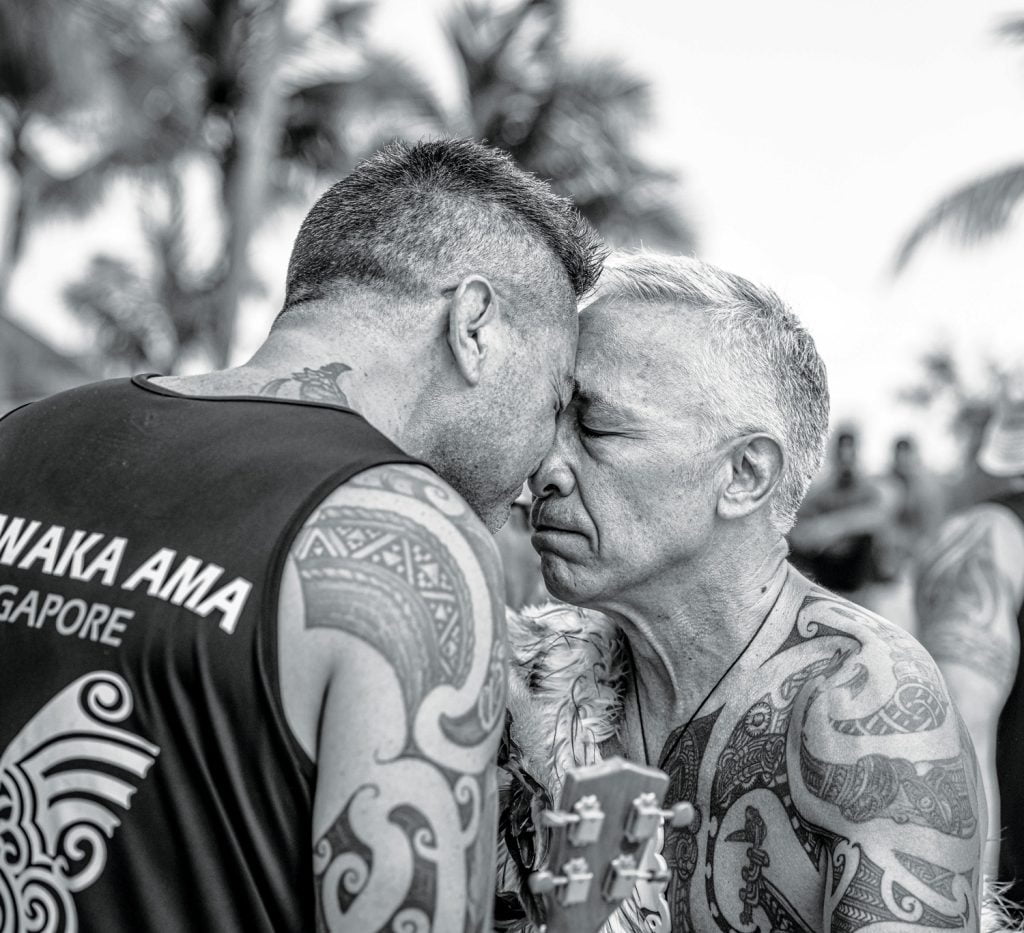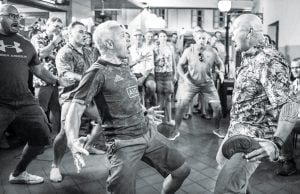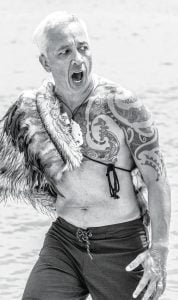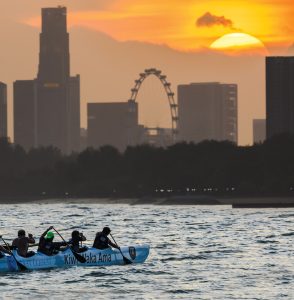 Where are you from and how long have you been an expat in Singapore?
Where are you from and how long have you been an expat in Singapore?
I was born in Whakatāne, a small coastal town in the sunny Eastern Bay of Plenty. I’ve been living in Singapore for 10 years, relocating after two years in Shenzhen, China. My wife Kristin is from New York and I have three daughters and six grandchildren all living in Aotearoa.
As a born and bred Māori, please give us an insight into your culture …
Māori culture is based on whanaungatanga (family connection) which is not too different from many other cultures. My father is from a whānau (family) of 20 and my mother from a family of eight. Māori culture is also about sharing experiences and having a sense of belonging to a tribe or group with a common belief, whether it be family values or working and playing together with a shared kaupapa (principles and values).
 So family is everything?
So family is everything?
Yes. Being able to identify your tribal affiliation through the waka (canoe) our tupuna (ancestors) journeyed on to Aotearoa, the maunga (mountain) that watches over your whenua (land), and your awa (river), the life force of your existence. A famous Māori whakatauki (proverb) sums this up perfectly: “He aha te mea nui o te Ao, he tāngata, he tāngata, he tāngata” which translates as “What is the most important thing in the world, it is people, it is people, it is people”. Another is, “He whânau kotahi tātou”, “We are one family”.
How do you show respect in Māori culture?
Respect is about māramatanga (understanding), mātauranga (knowledge), and manaakitanga (kindness and generosity). With evolution, these values have slowly changed. Around 10 years ago the use of Te Reo (the language) started to decline. All New Zealanders didn’t want this to happen as it is very much part of our heritage and identity. Now the use of Te Reo is everywhere and embraced by everyone.
Elders are the ‘messengers’ of our culture, making sure it is passed through generations
 What does it mean to be a Māori elder?
What does it mean to be a Māori elder?
The elders or kaumātua are the upholders or the ‘messengers’ of our culture, making sure it is passed through generations so it’s not lost. They’re the figureheads of the whānau and each has a Rangatira (Chief) – this is the eldest born male in that particular whānau and his tama mataamua (first born son) inherits that role through the generations.
As an elder, what can you do that others cannot?
During an official whānau hui (family gathering), only that person can speak on behalf of their whānau if they are present. In almost every community of Kiwis living abroad, there will always be someone or a small group that will maintain our cultural connection to Aotearoa. Here in Singapore, I don’t consider myself kaumātua, I just happen to be the oldest in our group. I am honored and privileged to be in the role of leading our cultural awareness in everything we do here.
Can women be elders too?
Kuia (females) are considered kaumātua as well. They are the heartbeat of our culture: the leaders of the waiata (songs) and kapa haka (action songs); harakeke (flax weaving); and creators of the beautiful korowai (maori cloak). They are also the best cooks in the world!
You are performing haka at ANZA’s GLITTERBALL. Please talk us through this …
Haka was introduced to Aotearoa by Māori as an expression of passion and identity. It also has tribal and territorial significance and early Māori used it as a challenge to visiting tribes. It has since evolved into a ceremonial custom used in official events. Many NZ groups use haka as a common identity telling a story about their roots and who they are. Our Kiwi Waka Ama club in Singapore has its own haka which tells the story about our waka journey. This is what we will perform at the ANZA Ball.
 Can anyone perform haka?
Can anyone perform haka?
Yes, however there are strict protocols around how to do it. If it’s not done correctly, you can offend people. You can’t laugh or joke around, it is to be taken seriously, upholding the mana (spiritual status) of its origin. We call it a taonga (a treasured gift) from our tupuna. Every haka is different. Not just the All Blacks, the NZ Rugby League team, the NZ Māori Rugby Team, our Armed Services and even Secondary schools have their own.
How easy is it to keep Māori traditions alive in Singapore?
There are so many Kiwis living overseas that our culture is always present. You just need to create a platform to allow people to express it and give them the opportunity to be reminded of where we are from. For example, before I go paddling with our Kiwi Waka Ama paddle club, we say a karakia (prayer) asking for protection while we are out on the moana. Once you have a connection you never lose it. If anything, it’s stronger because you live away from home.
 What would surprise readers most about Māori culture?
What would surprise readers most about Māori culture?
There are no surprises because the traditions have been around for generations. I feel very fortunate because almost everywhere I go, my tā moko (traditional tattoo), the colour of my skin and my accent (in that order) reveal that I am Māori. For many people I meet as I travel, especially in Asia, this almost always makes them break into their impromptu version of haka! While this can often make me cringe, at the same time it fills me with a sense of pride that always makes me smile. “Tohaina ō painga ki te Ao”; “Share your gifts with the world”.








